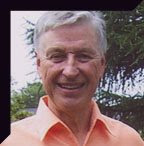You should hear the student preachers.
This morning another senior gave his 15-minute exhortation, taking as his text Psalm 133. Seemingly a ho-hum 70-word poem by King David. What can come out this, the last Song of Ascent? Sure—it’s about unity among the pilgrims coming from all corners of the land to the great festival in Jerusalem. But what can we squeeze from this old lemon that’s relevant to 21st century Christians?
The young man hinted at allegory. O my, thought I—not an auspicious start. But then he skillfully noted that this is a poem, a song, and should be understood accordingly. What does David intend by the poetic license he uses with these striking images of oil on the beard of the priest and dew on the snowy peaks of Syria? To us, oil is oil.
We know Bedouin tribes used oil to replenish parched skin—the ancient equivalent of Oil of Olay. So the image of it running down from head to beard to collar makes some sense. That’s the part exposed to the sun. Sort of like us in winter jumping into a cozy bubble bath after a day on the icy slopes.
But here the Bible scholar earns his keep. You see, the emulsion used was a special concoction of oil and spices from the secret recipe of God himself. It was not to be used except to anoint priests. Exodus 30 details the sacred formula: myrrh, cinnamon, cane, cassia to be blended in specific proportions by a perfumer to anoint the Tent of Meeting and its utensils, as well as the priests. It is not to be used for any other purpose. It is a Holy Blend. The harmony of God’s people is thus holy and unique in a world torn by divisions of nation, creed, caste, race, and language.
The dew of Hermon to the peoples of Palestine was a pure and perpetual source of life, feeding the streams that nourished the plains below. Mount Zion in Jerusalem to the south is arid in comparison. Mount Hermon is lofty; Zion is lowly. But the poet imagines the life-giving action of the perpetual moisture of Hermon falling on the people of God as they gather to worship. There the Lord commands life to flourish—life forevermore. In that life humans come together as one before the Living God.
Our preacher now sends the arrows to the mark—straight to our hearts. India is wracked with divisions hard for us in the USA to grasp. While we have discrimination lingering in the background, here it is in your face every day. Caste and color count for much here—it’s the curse of thousands of years of Hindu worldview. Poor and uneducated people have little hope of deliverance from their grinding condition. Gender bias is stronger here also. You see it everywhere—so obvious.
Sad to say, it is present in the churches, along with doctrinal divisions. This is not what God intends. By creation God made but one human distinction: man and woman. None besides. Yet we have a thousand divisions in society and even in the body of Christ. We must get rid of this ungodliness. The connection? The spices lose their individual identity as they meld into the fragrant composite. The two mountains become one in the single mountain range whence the life-giving waters flow, replenished from the dew that falls from the heavens.
The Duke of Wellington, a century or more ago, went to the altar in church to receive the sacrament of the Lord’s body and blood. He came down the west aisle and knelt down to receive the host. At the same time a poor peasant came down the east aisle and knelt. Someone touched the man and whispered for him to arise and wait until the Duke was served. But Wellington, grasping the intent of the touch and whisper, grabbed the man’s hand so he could not rise. “We are all equal here. Stay where you are.” His words carried to the congregation and thus are known to us.
As we rise for the benediction, he asks us to hug the person to our right and left while saying, we are one in the Lord. Now this may seem easy. But for some in this audience it may be a stretch to actually act out across a socially ingrained barrier to that degree. Sitting next to someone not your background and speaking to him or her is one thing. Touching them with an embrace of unity is another.
But the dew of Hermon was among us this morning. “How good and pleasant it is when brothers and sisters live together in unity!”
Sitting in the “seat of the skeptical”—the backbench faculty, I notice that even we hardened old warhorses are actually moved. Good preaching informs the mind of new things mined from the Word of God. But it must also move the heart and energize the will to reach for a new level with God.
Well done, senior preacher!
Monday, November 10, 2008
Subscribe to:
Post Comments (Atom)

No comments:
Post a Comment